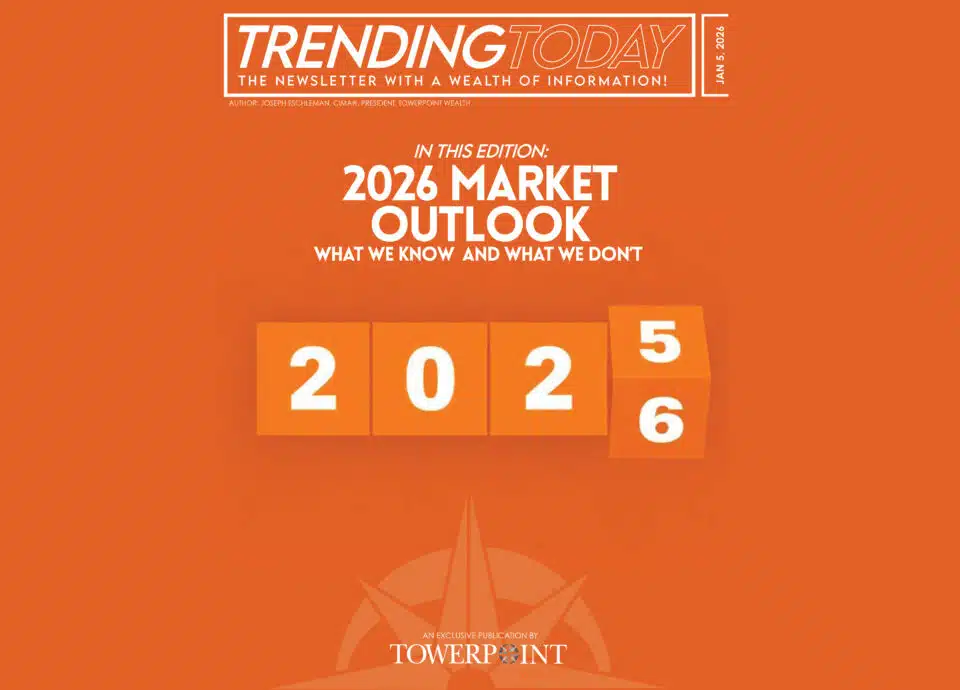TPW Trending Today
Towerpoint Wealth’s curated space for timely financial insights, expert analysis, and practical guidance. Here, we spotlight evolving market trends, important economic developments, and actionable wealth-management strategies designed to help you build, protect, and grow your assets. Whether you’re reviewing long-term portfolio allocation, planning for retirement, or navigating today’s shifting financial climate, our goal is to cut through the noise — giving you clarity, confidence, and a steady hand toward financial success. Check back regularly for fresh takeaways that keep you ahead of the curve.












